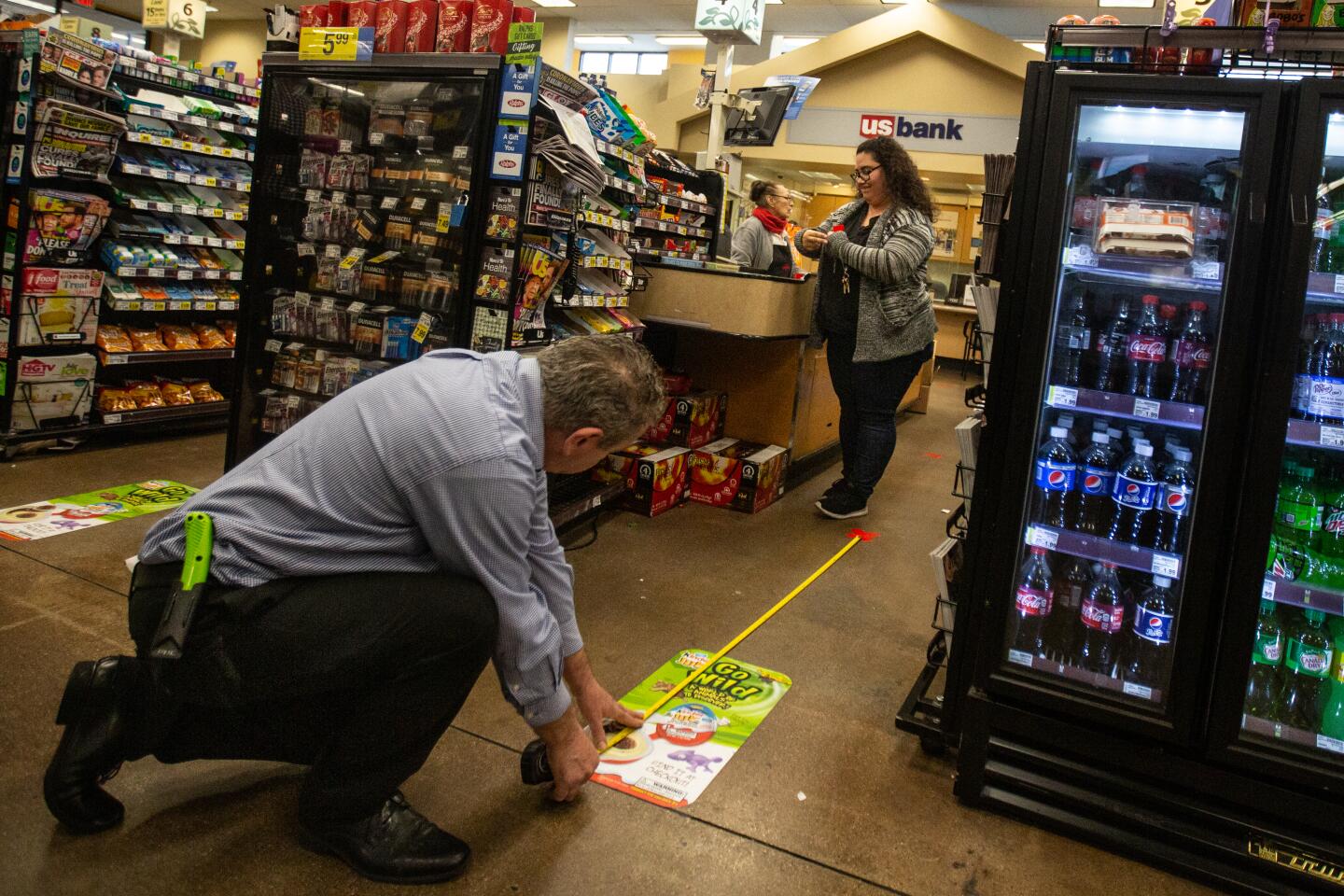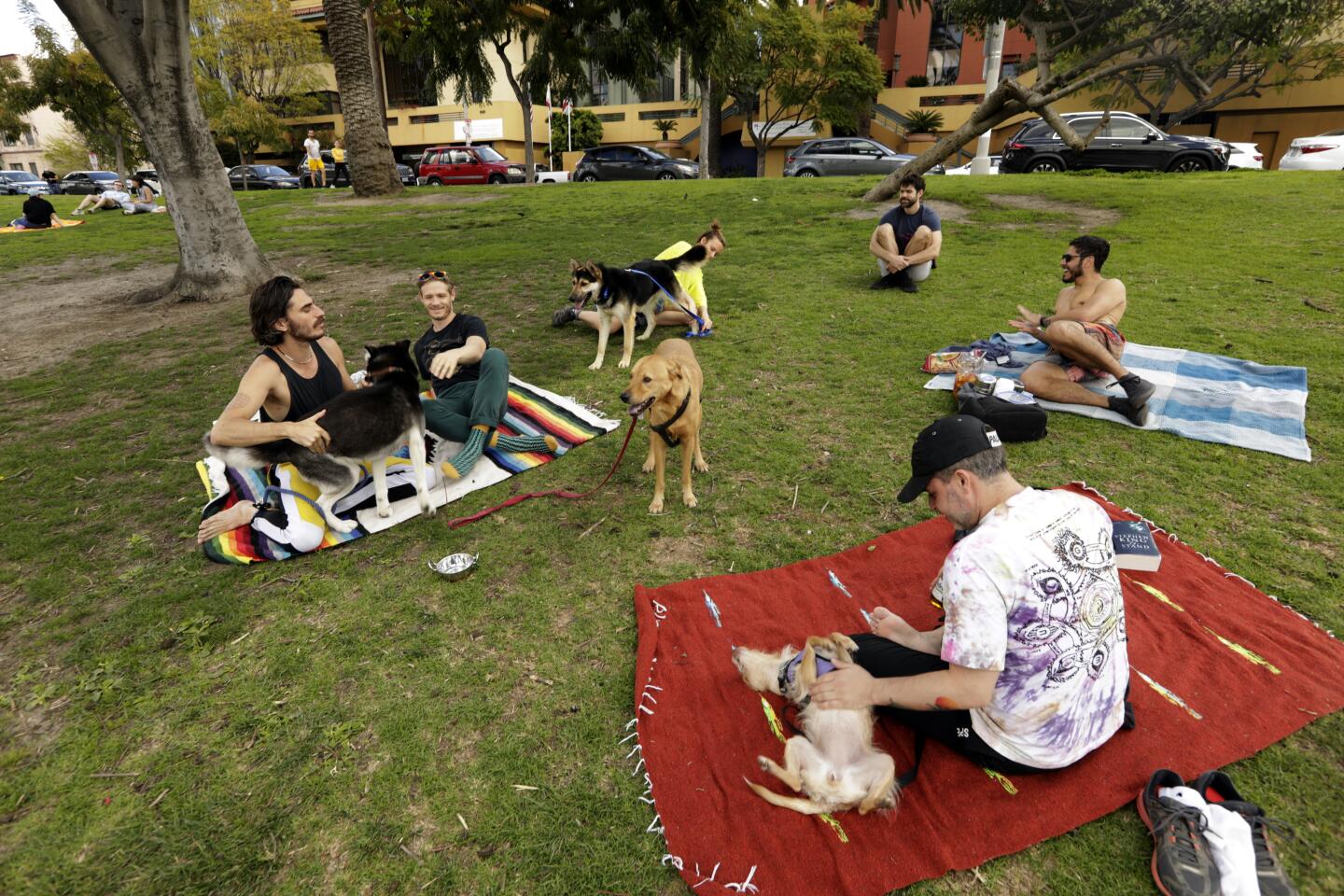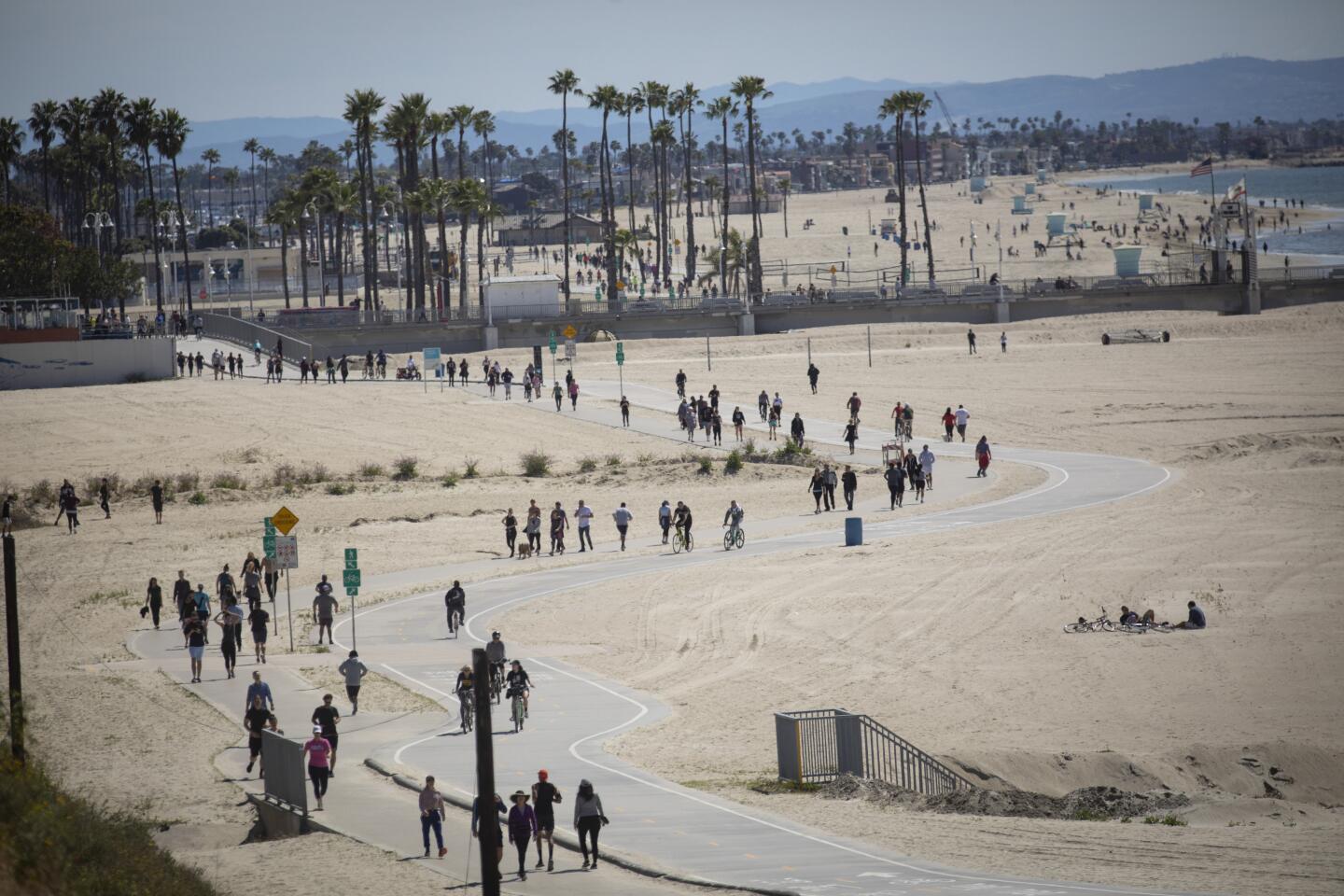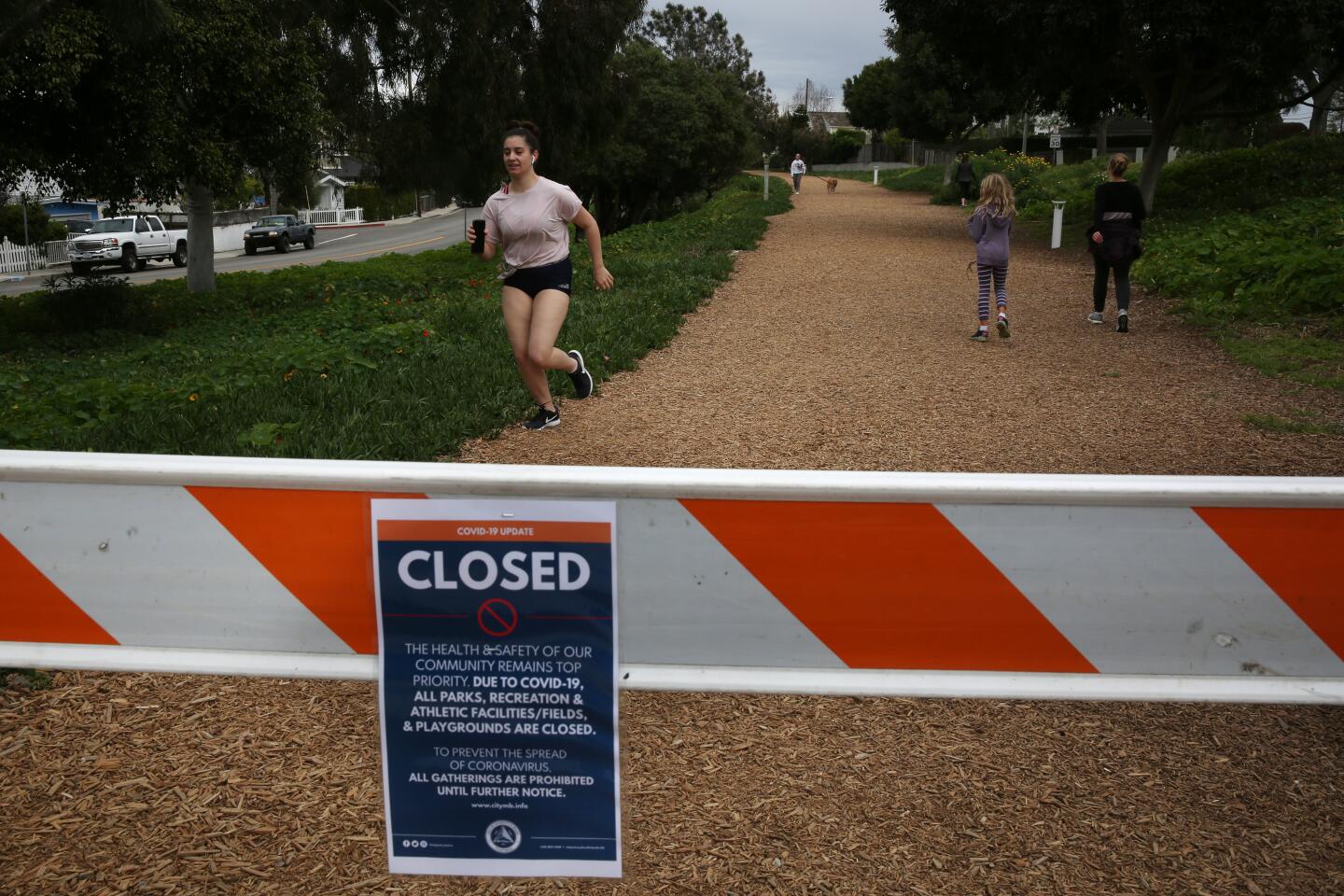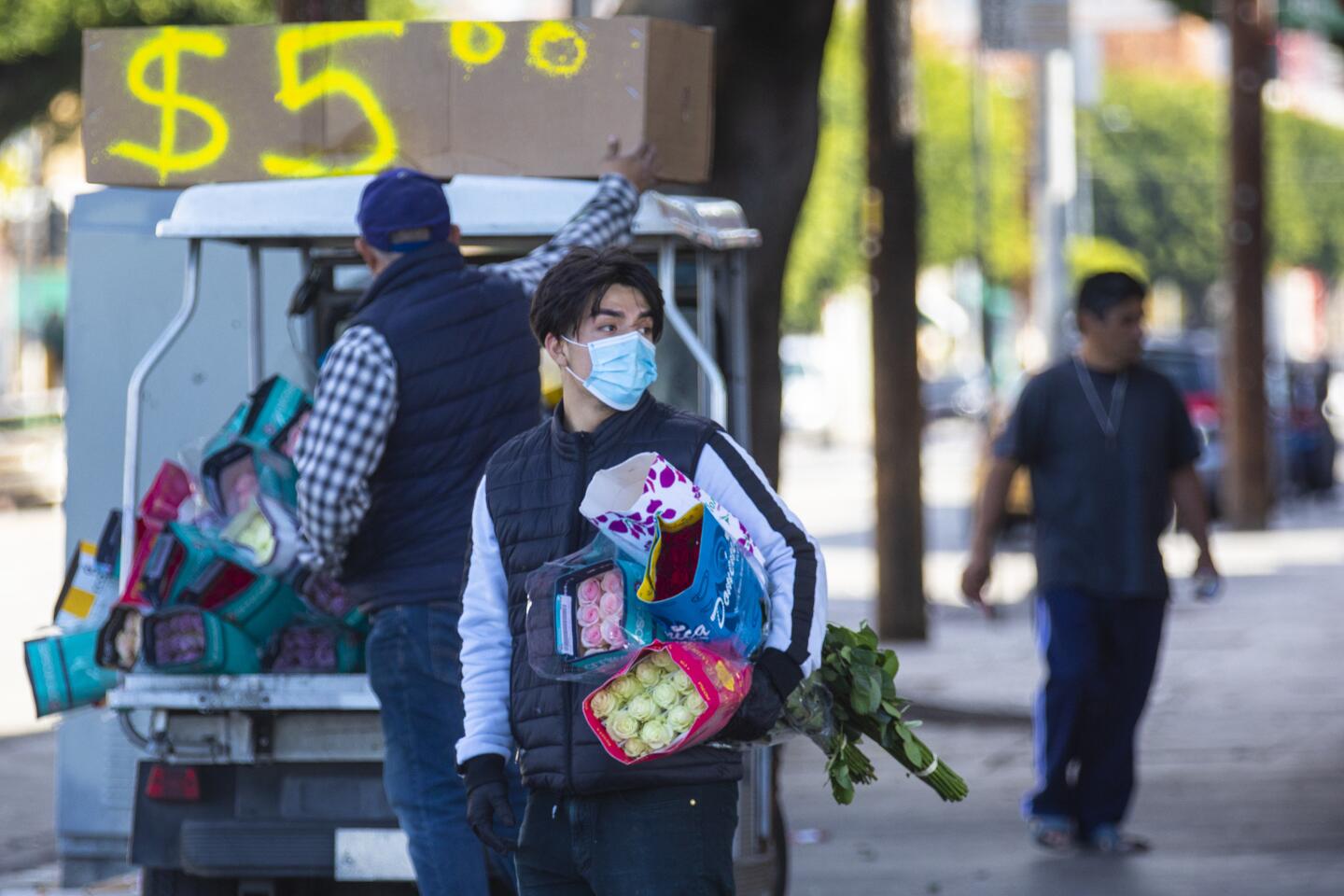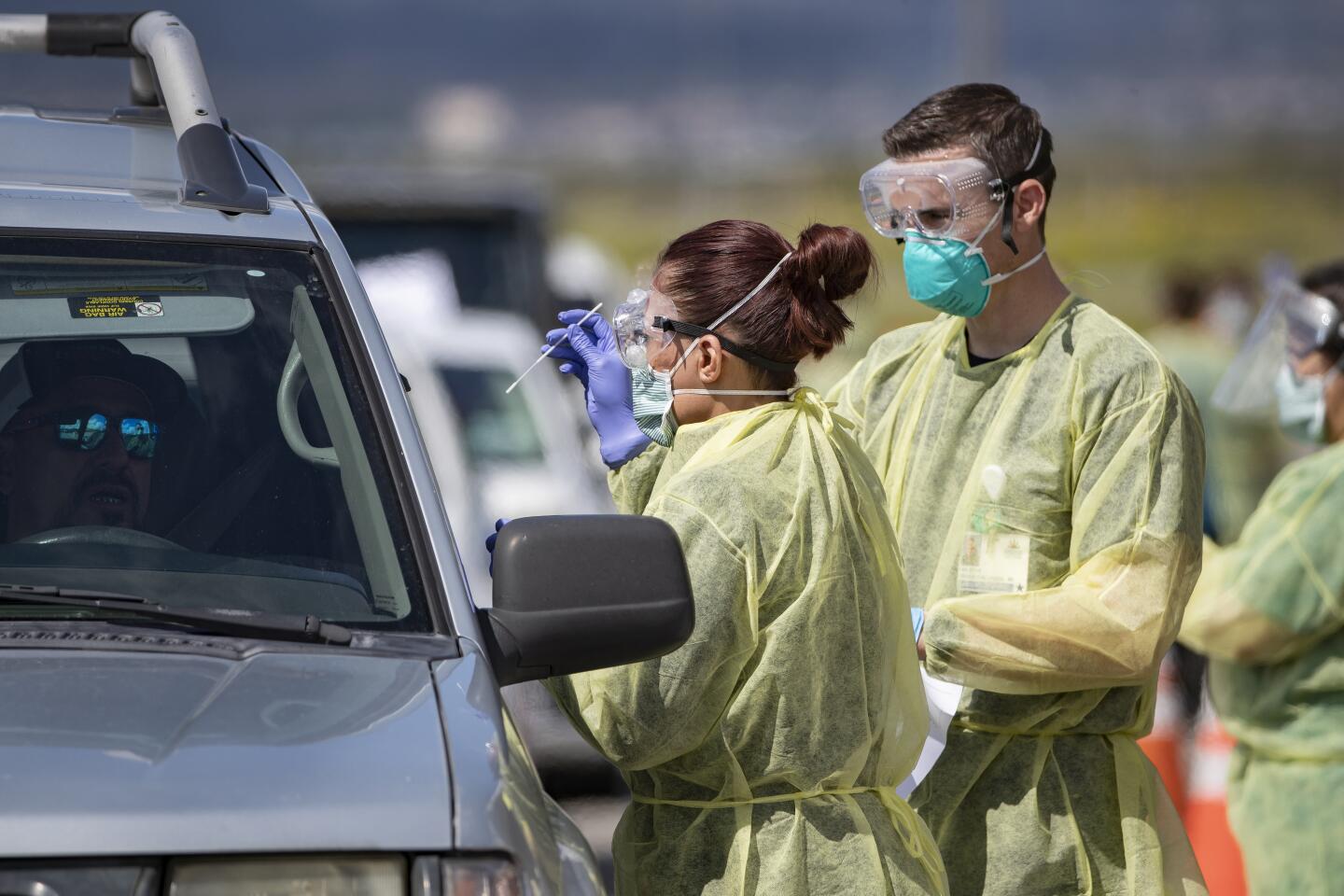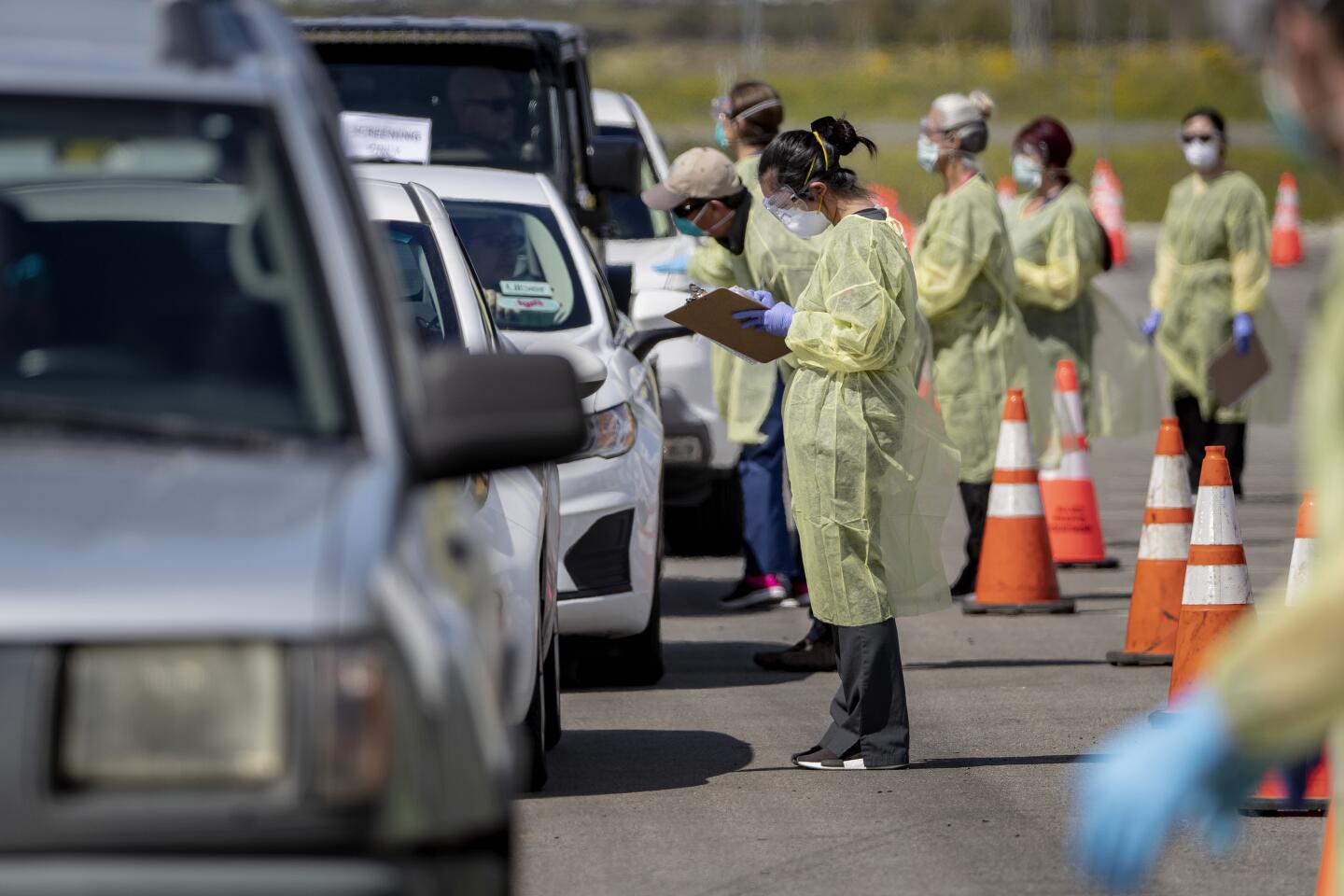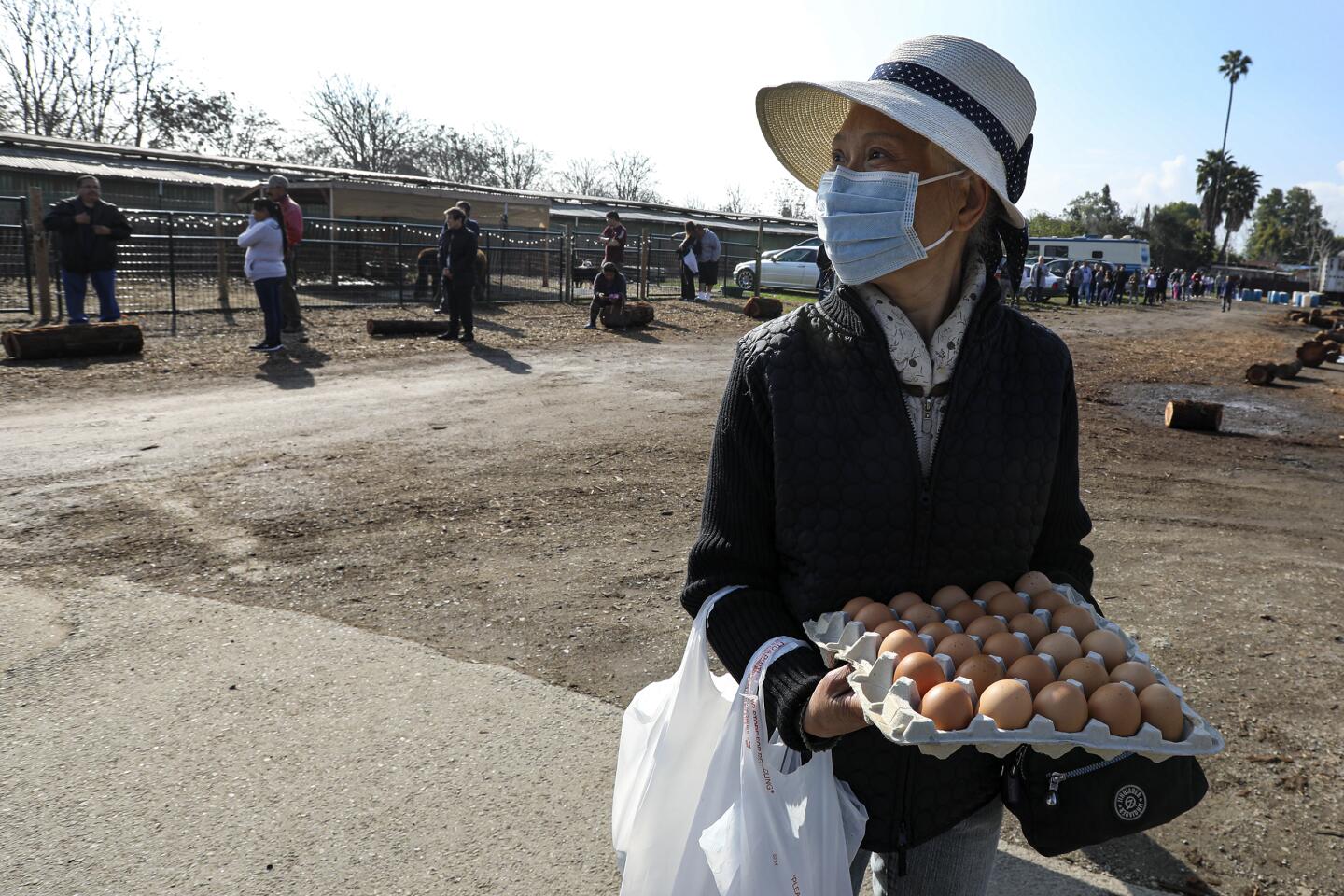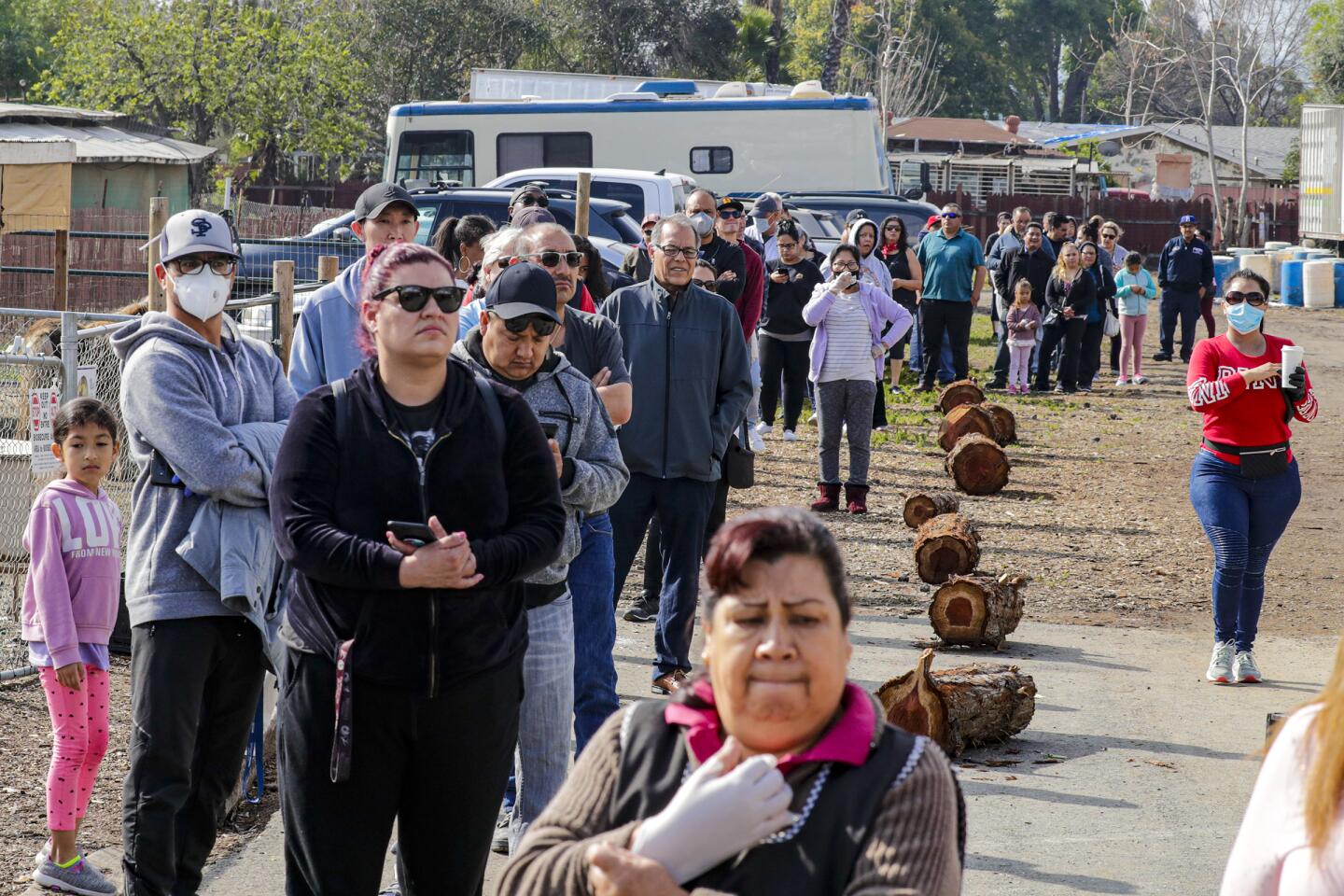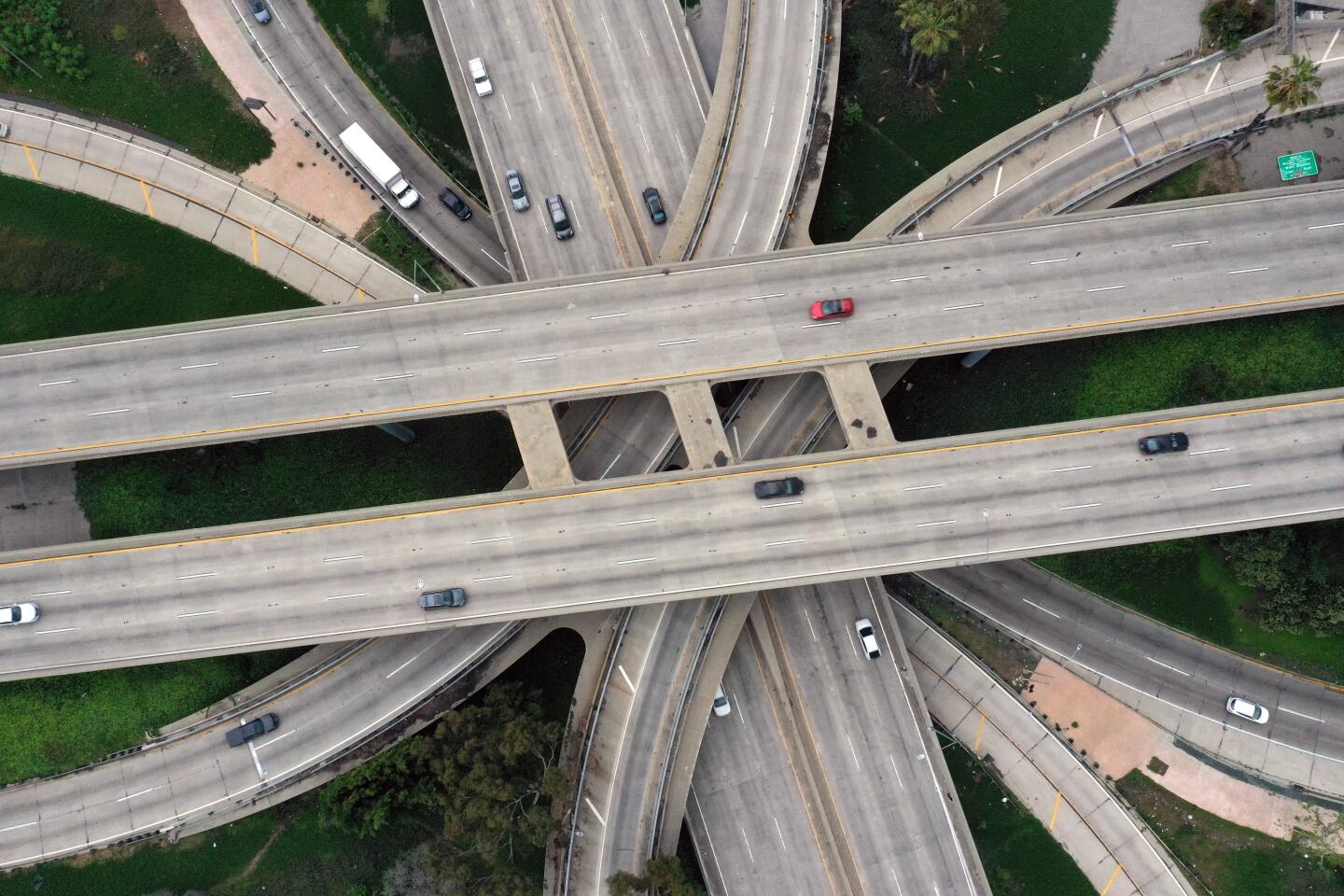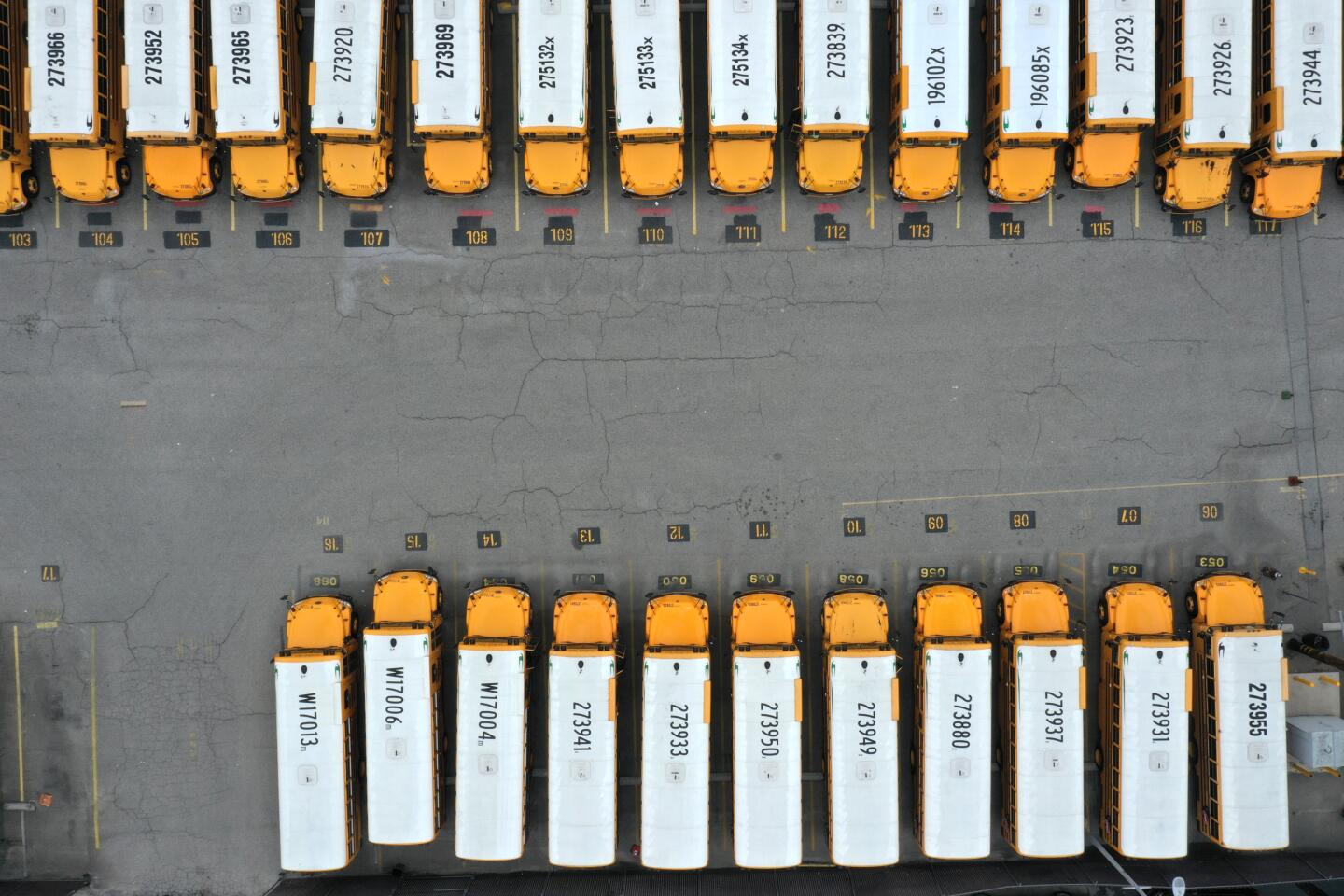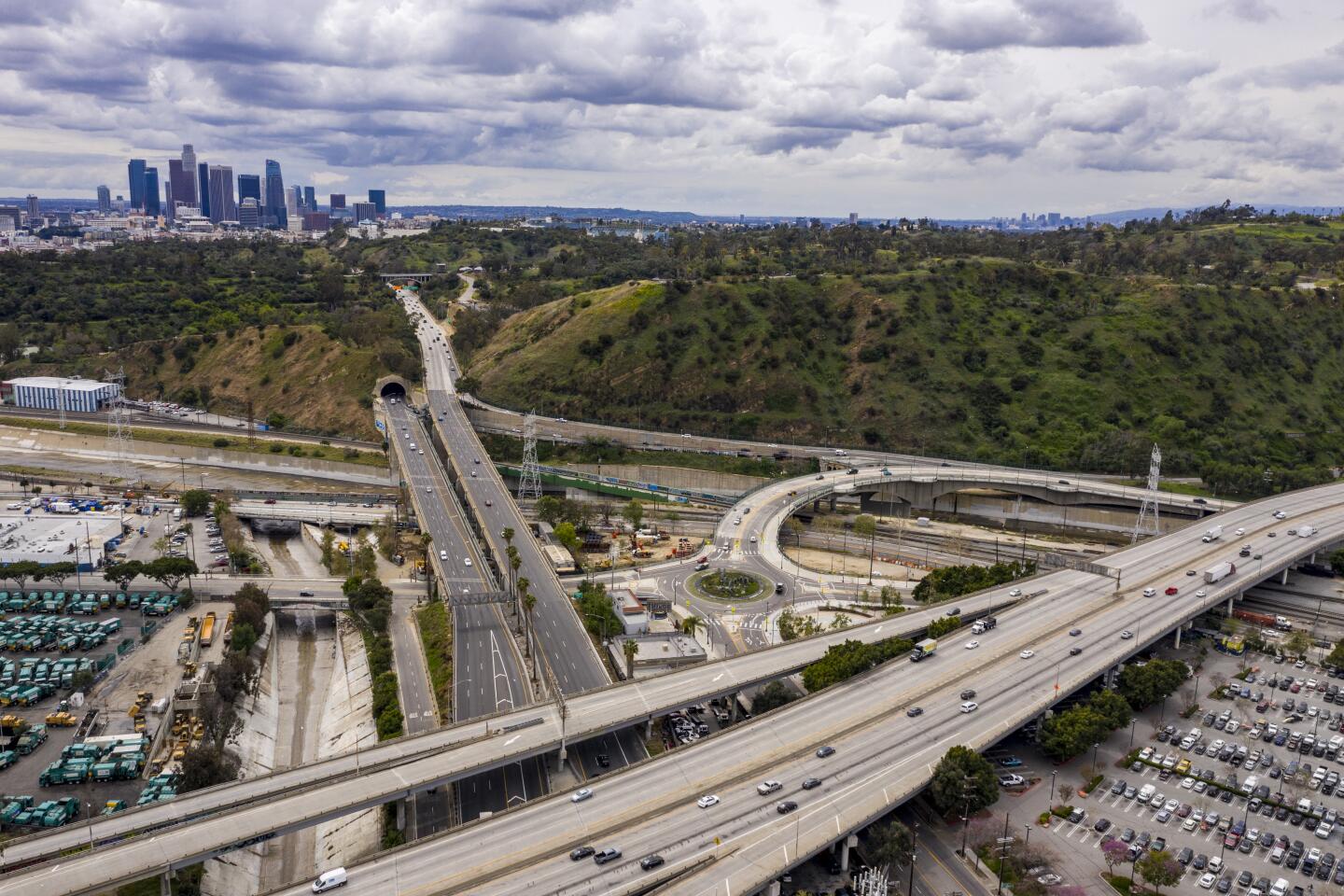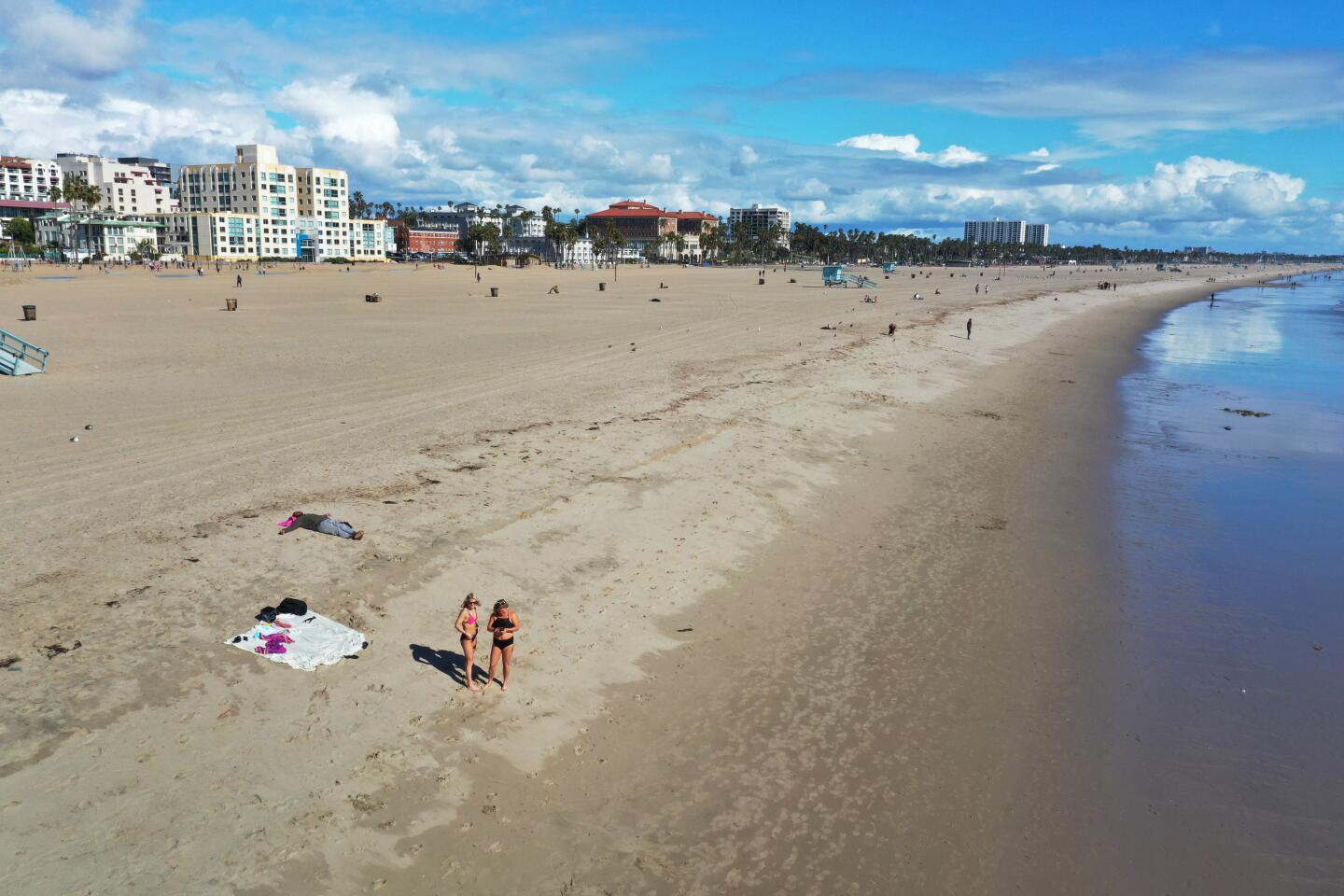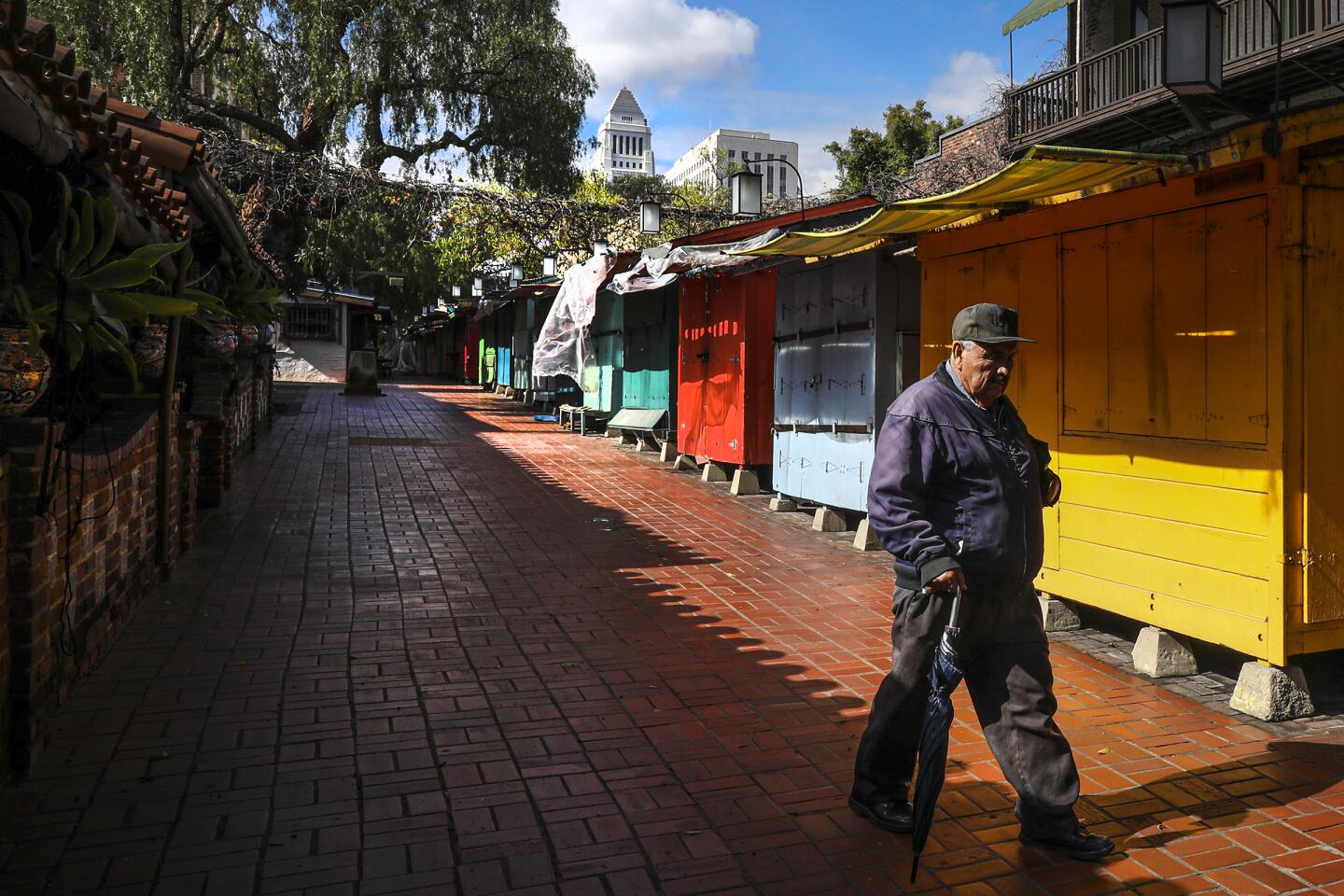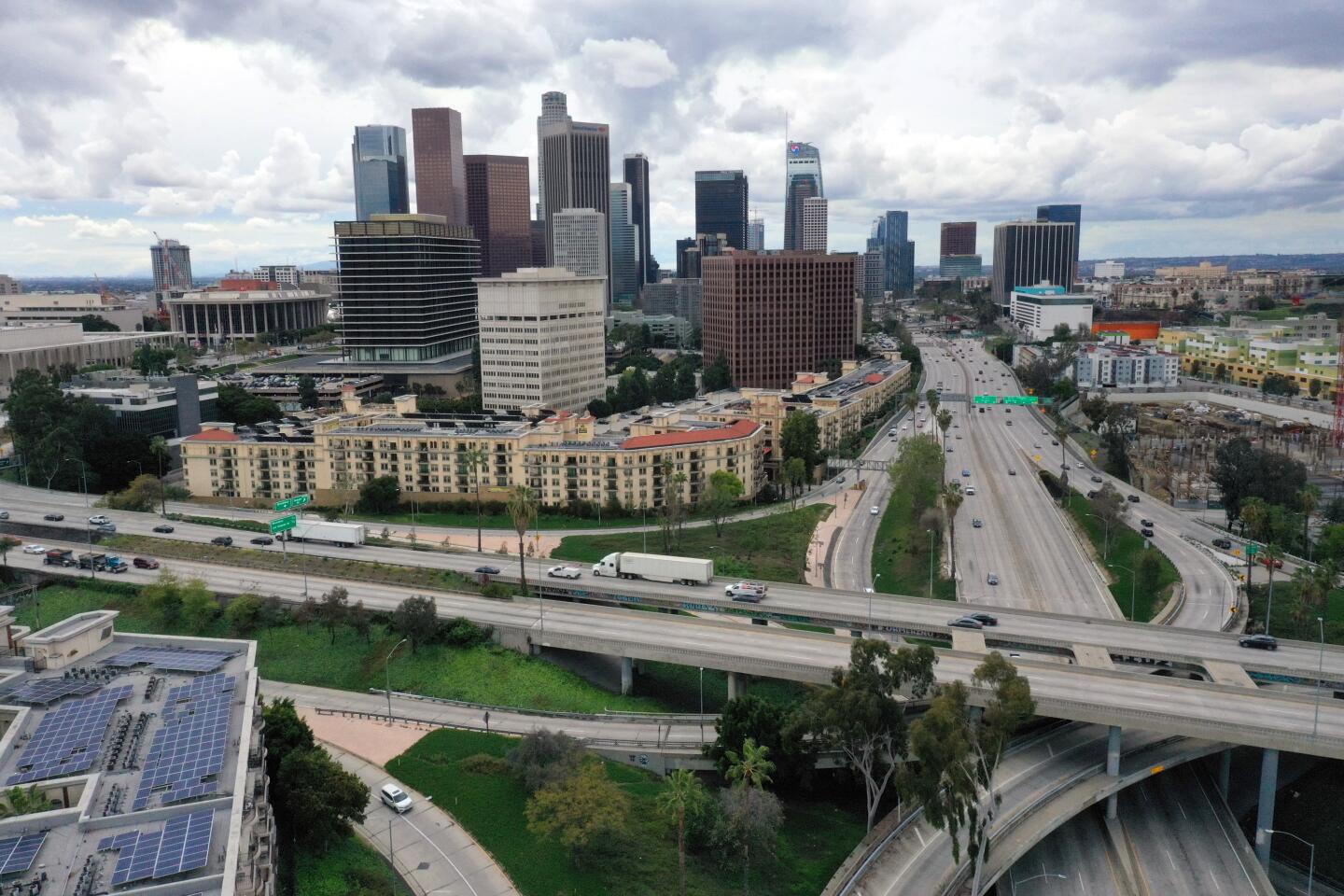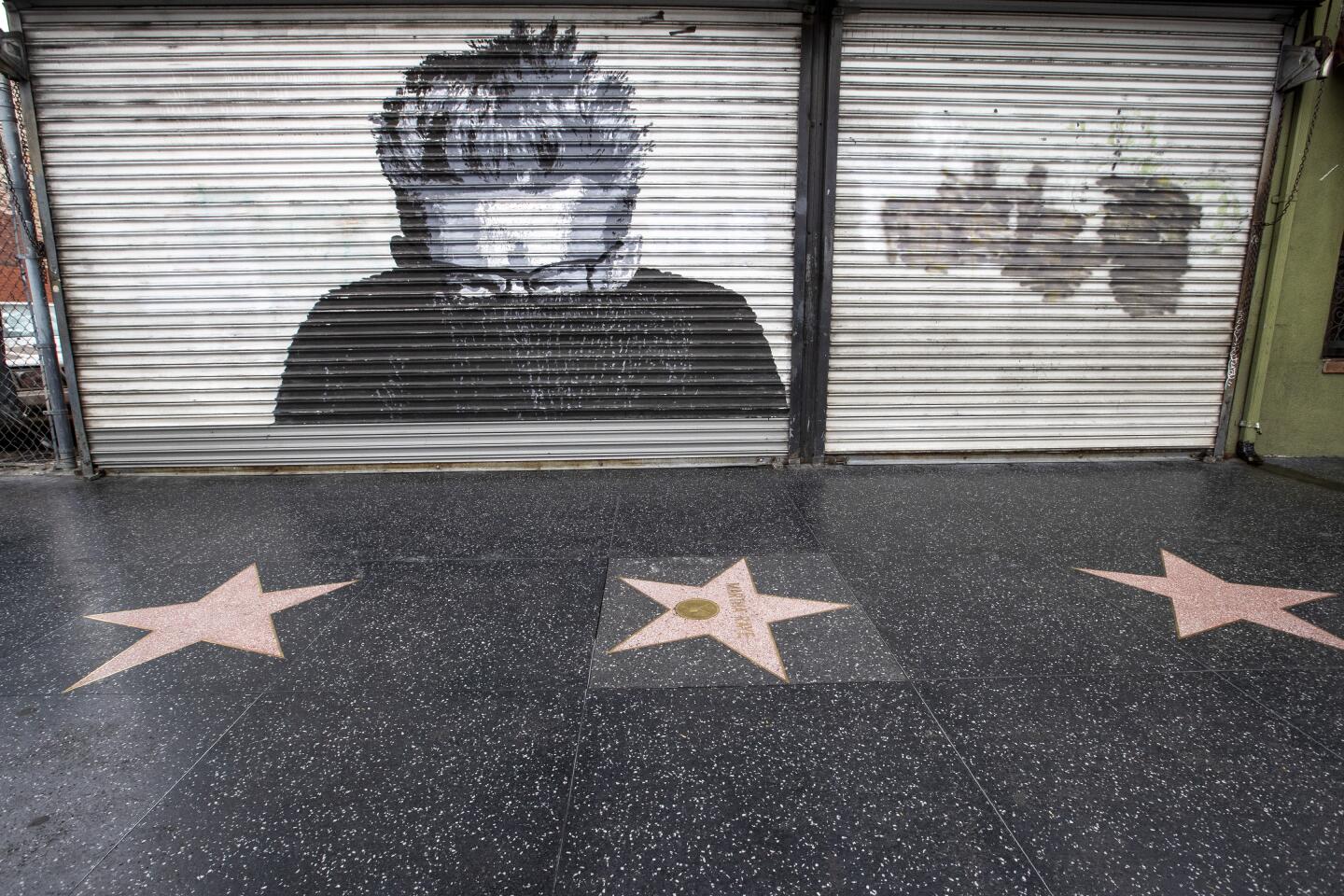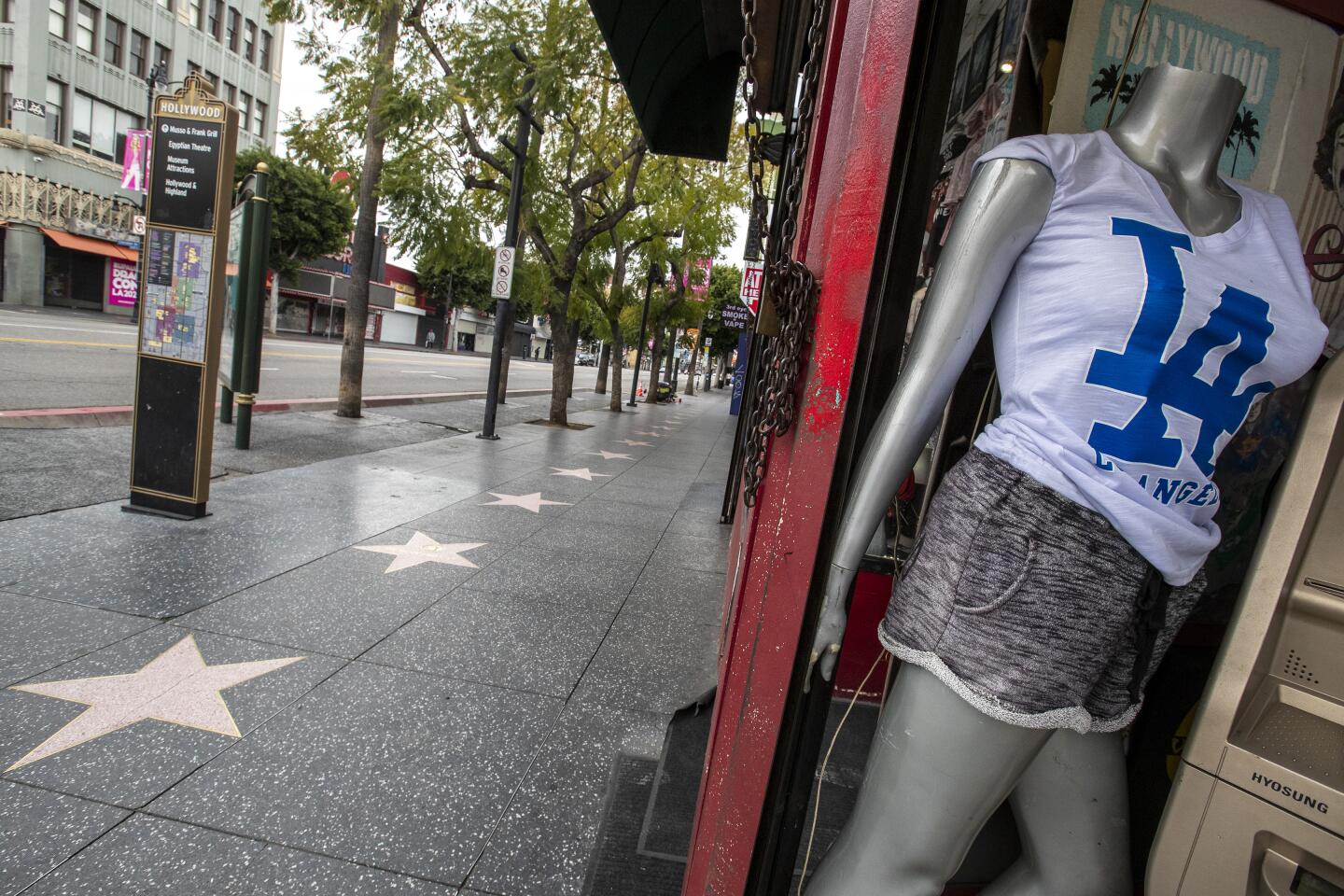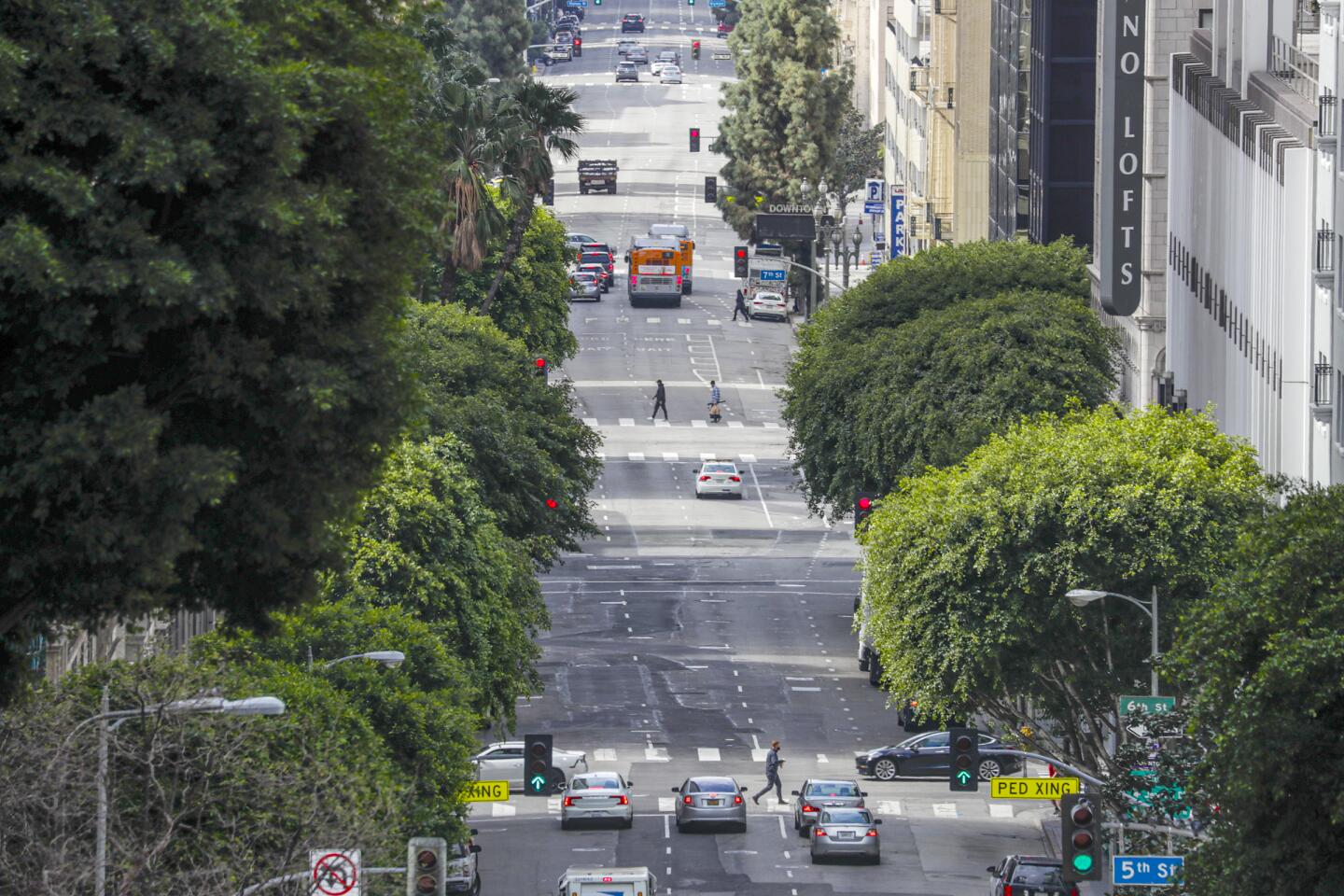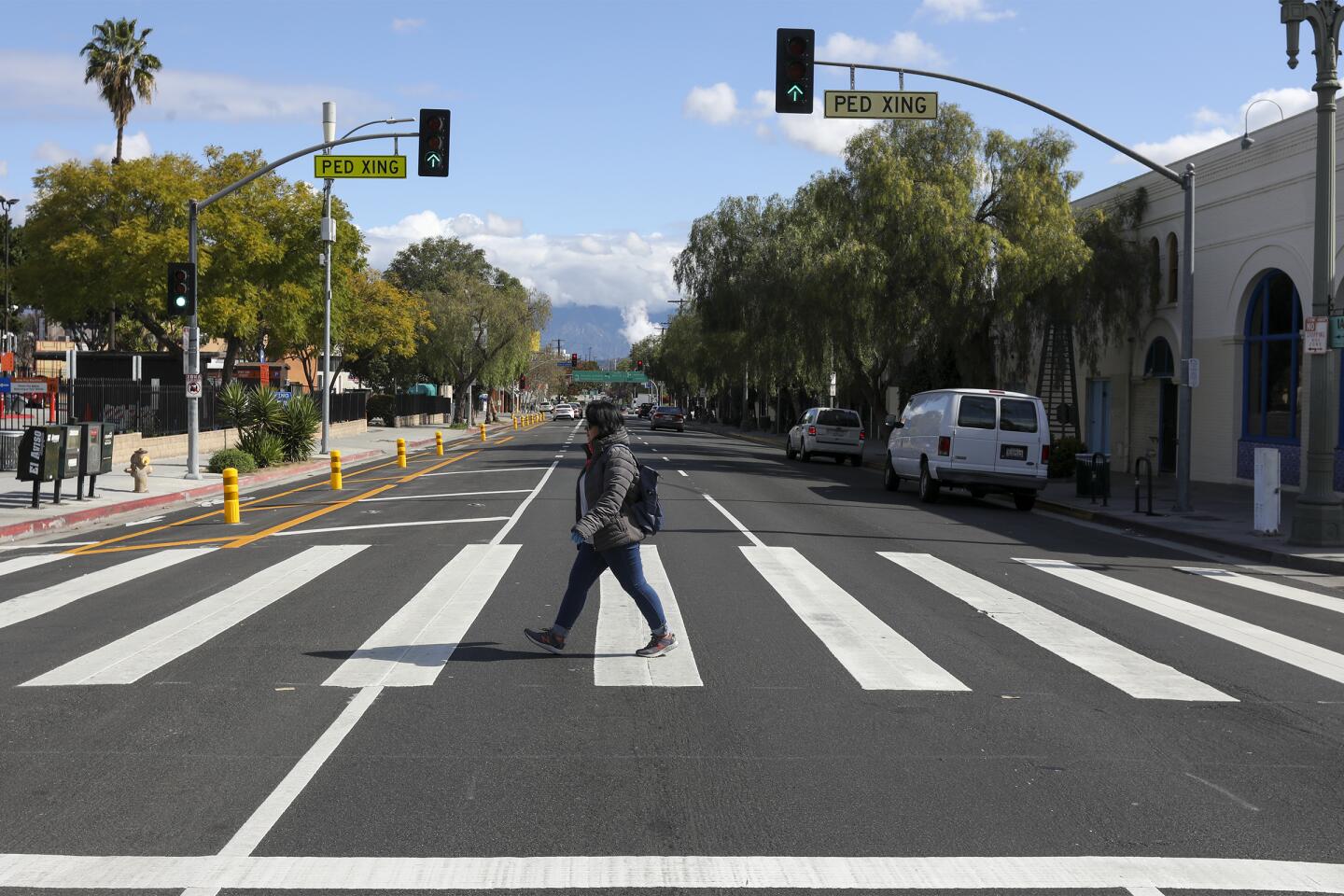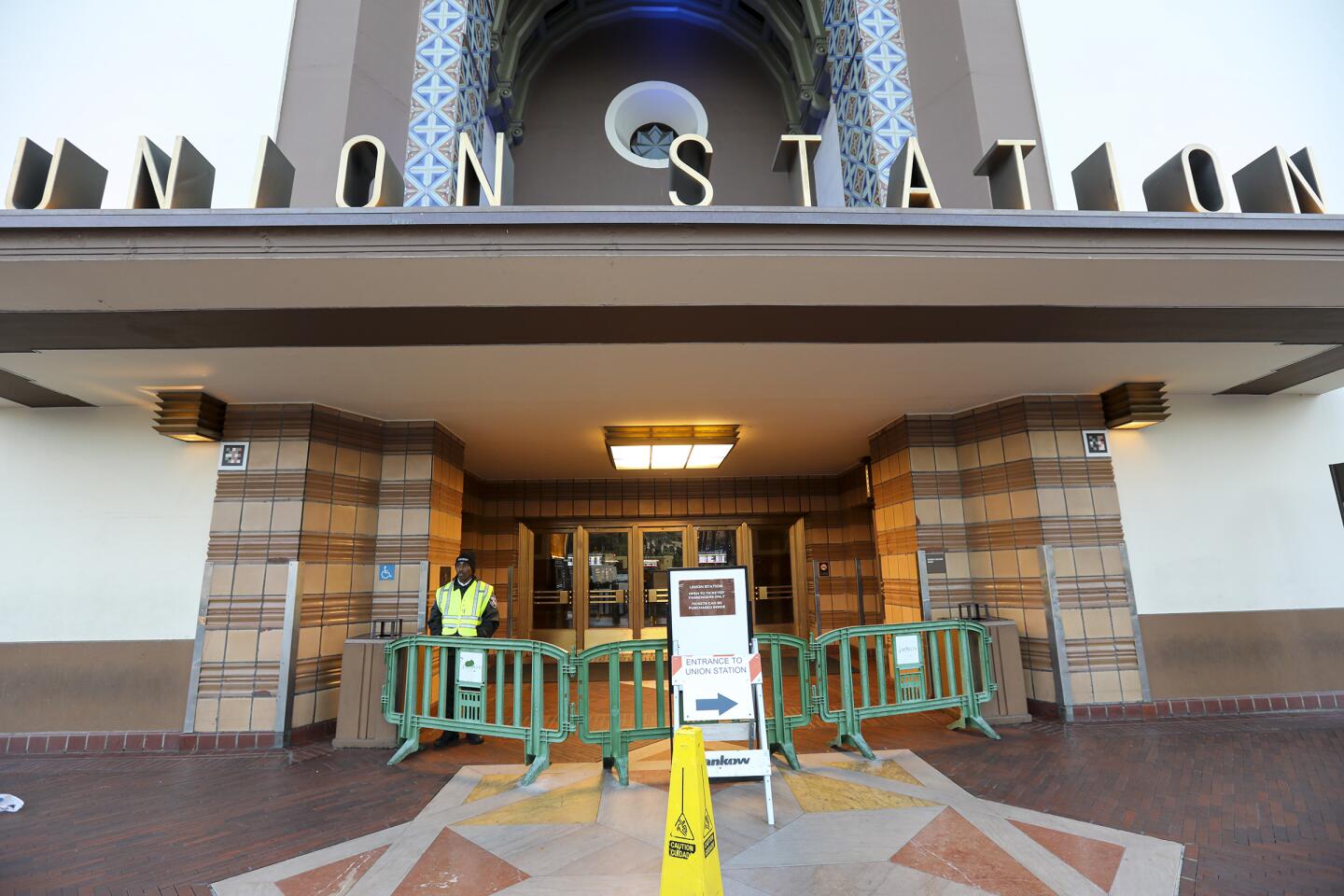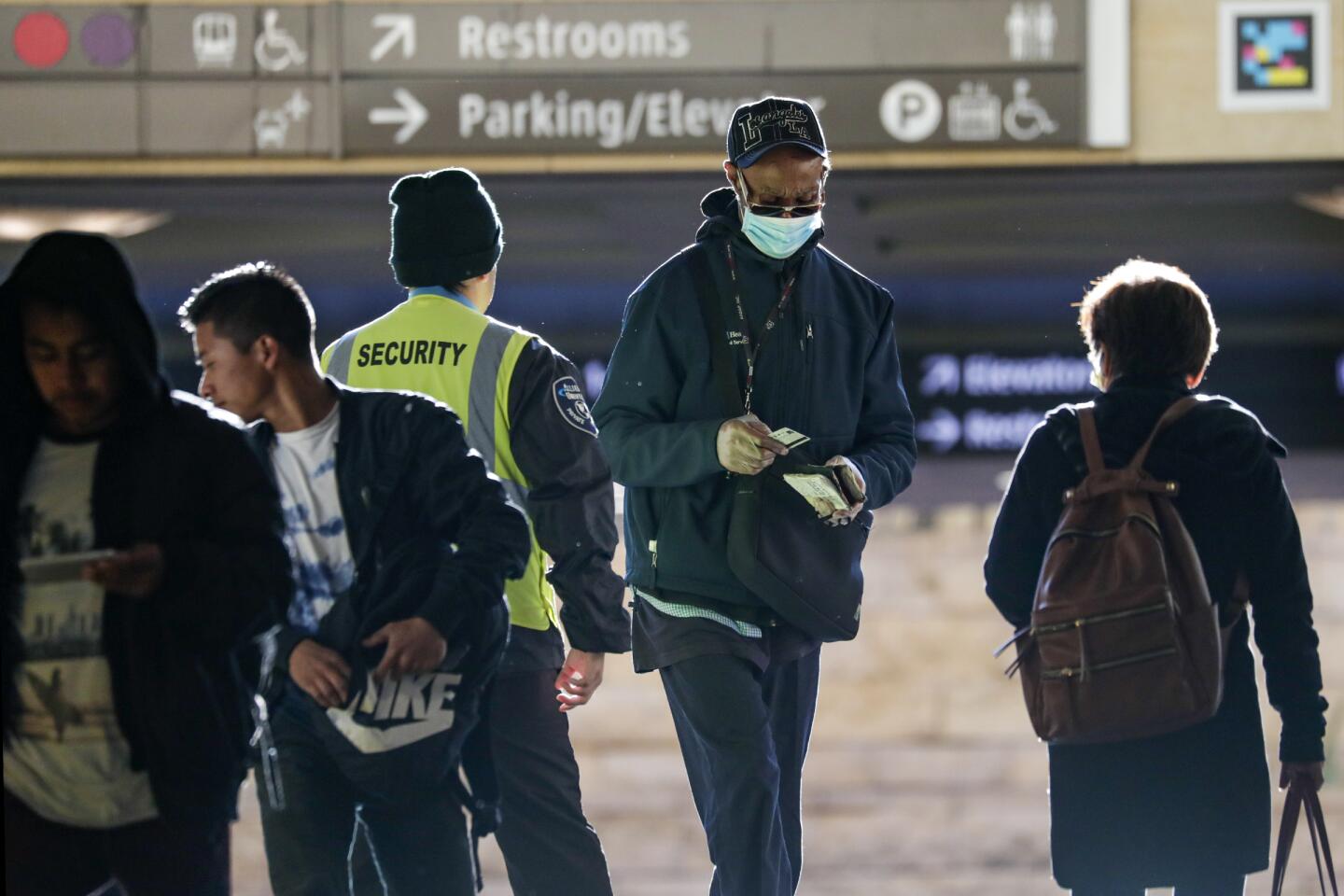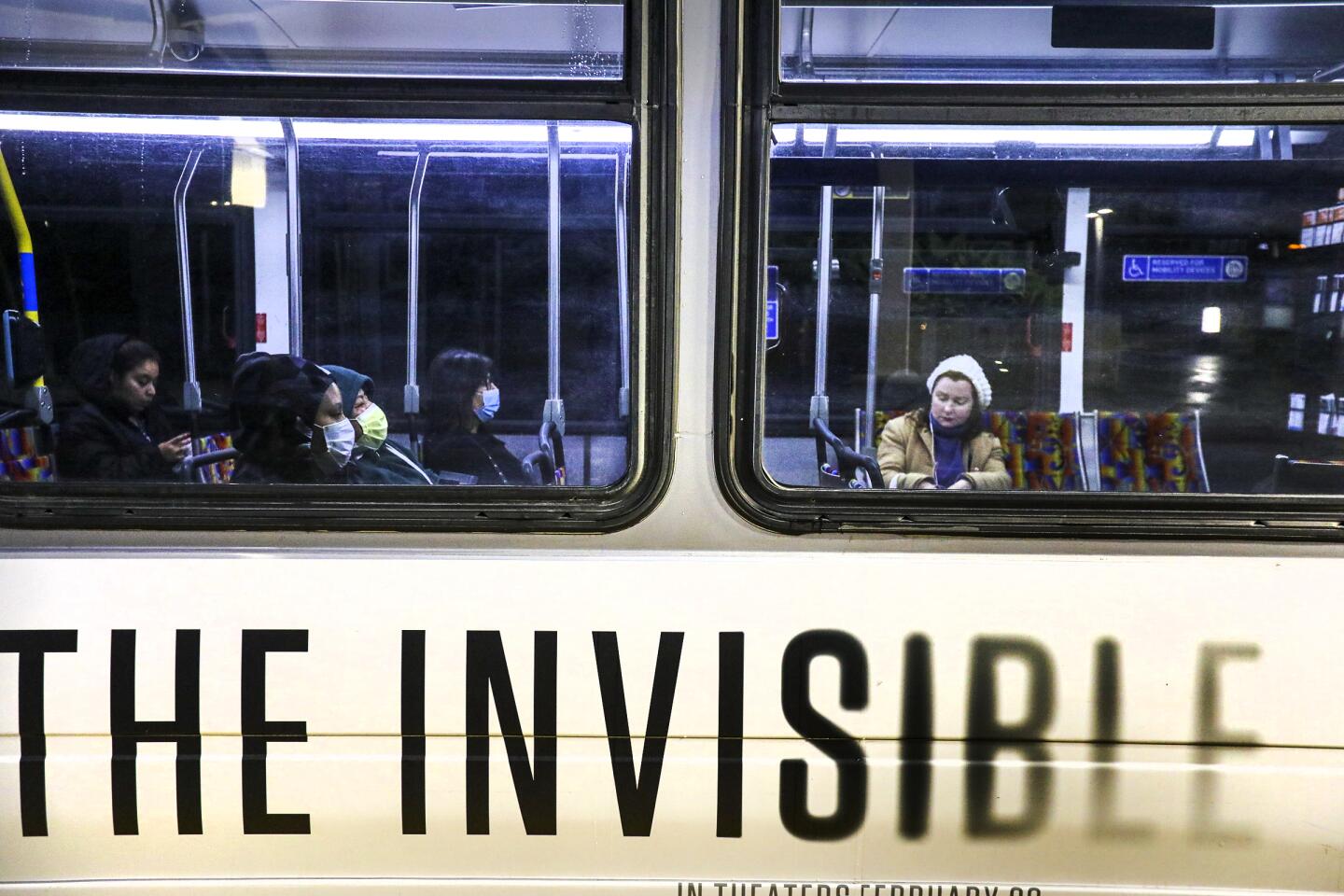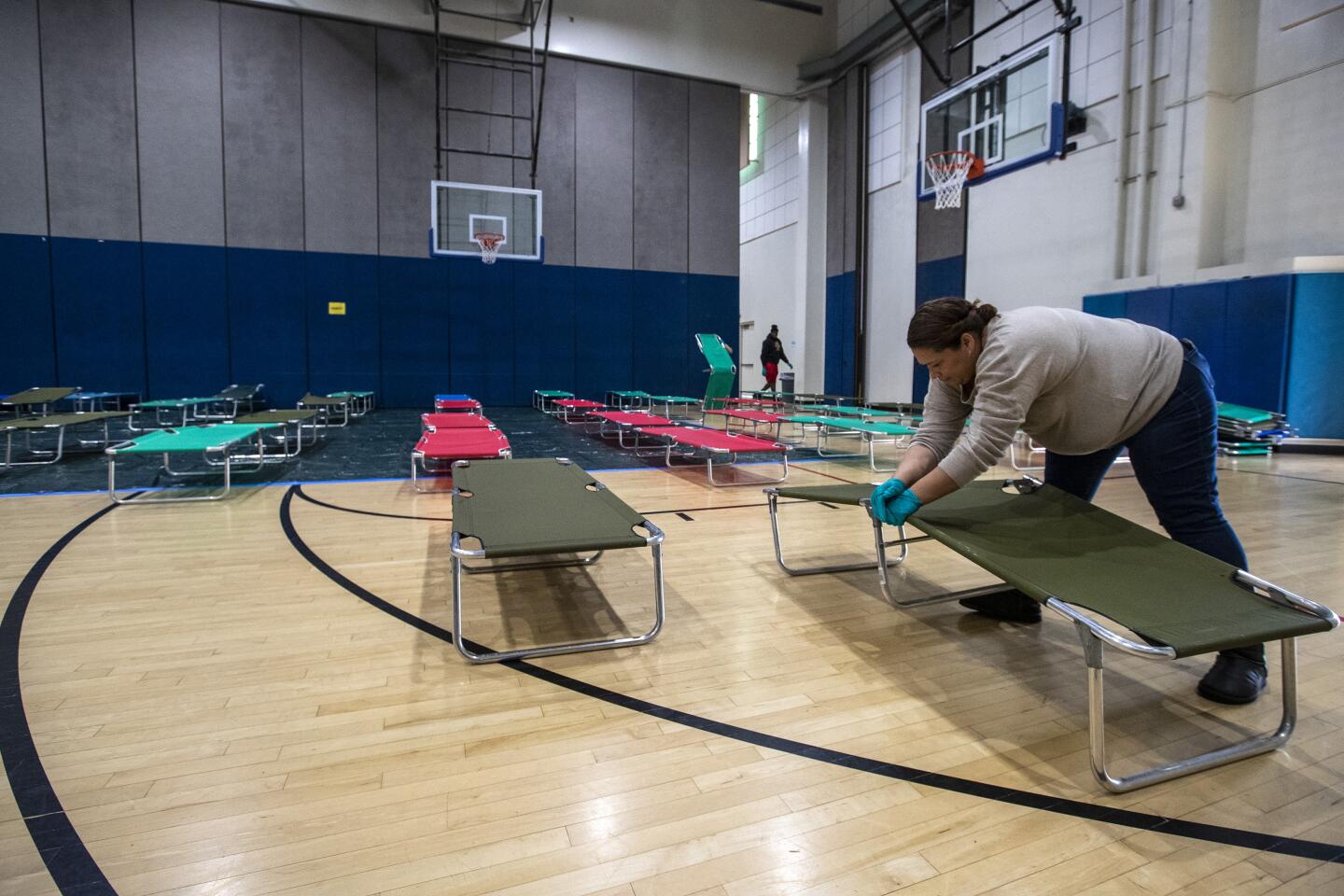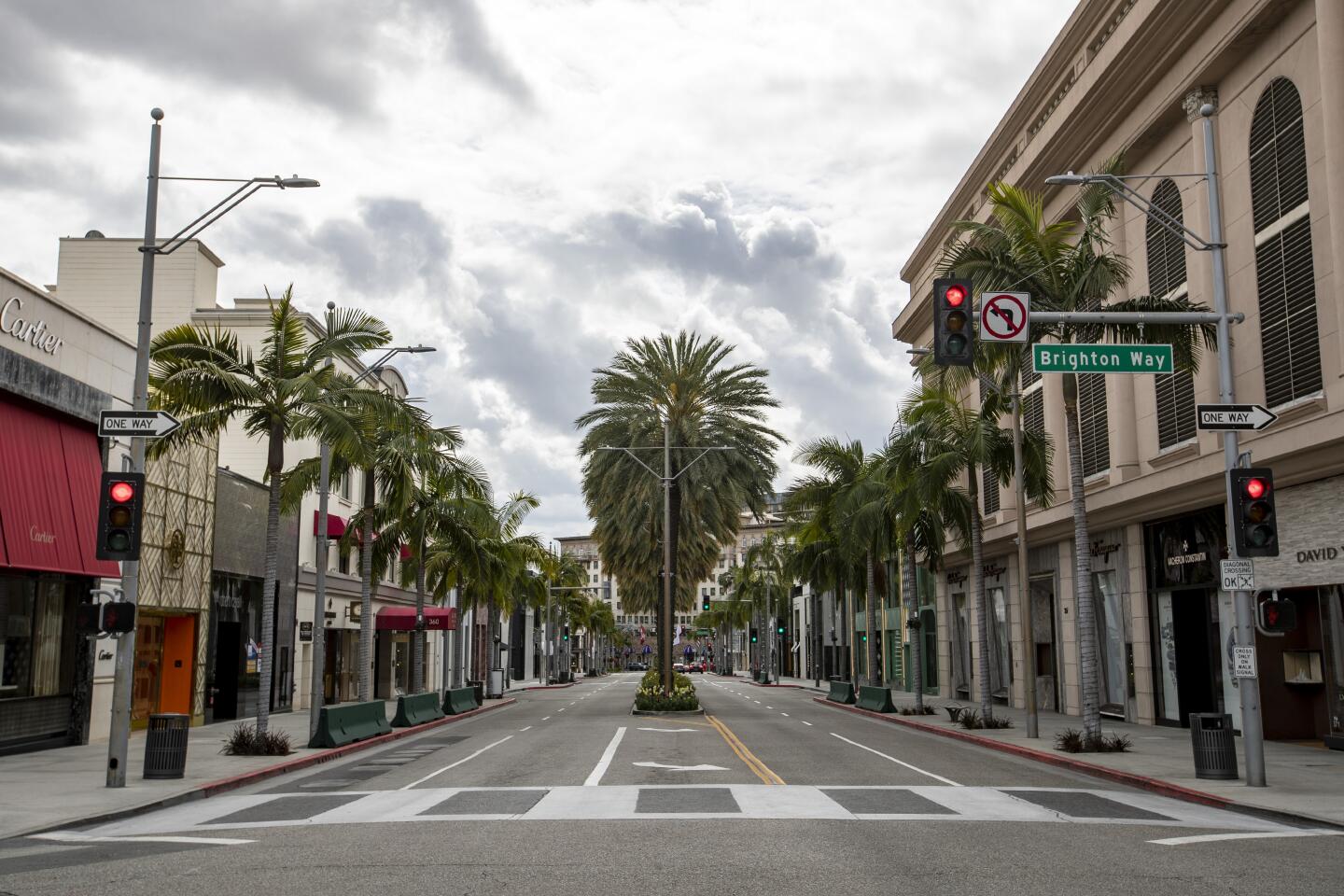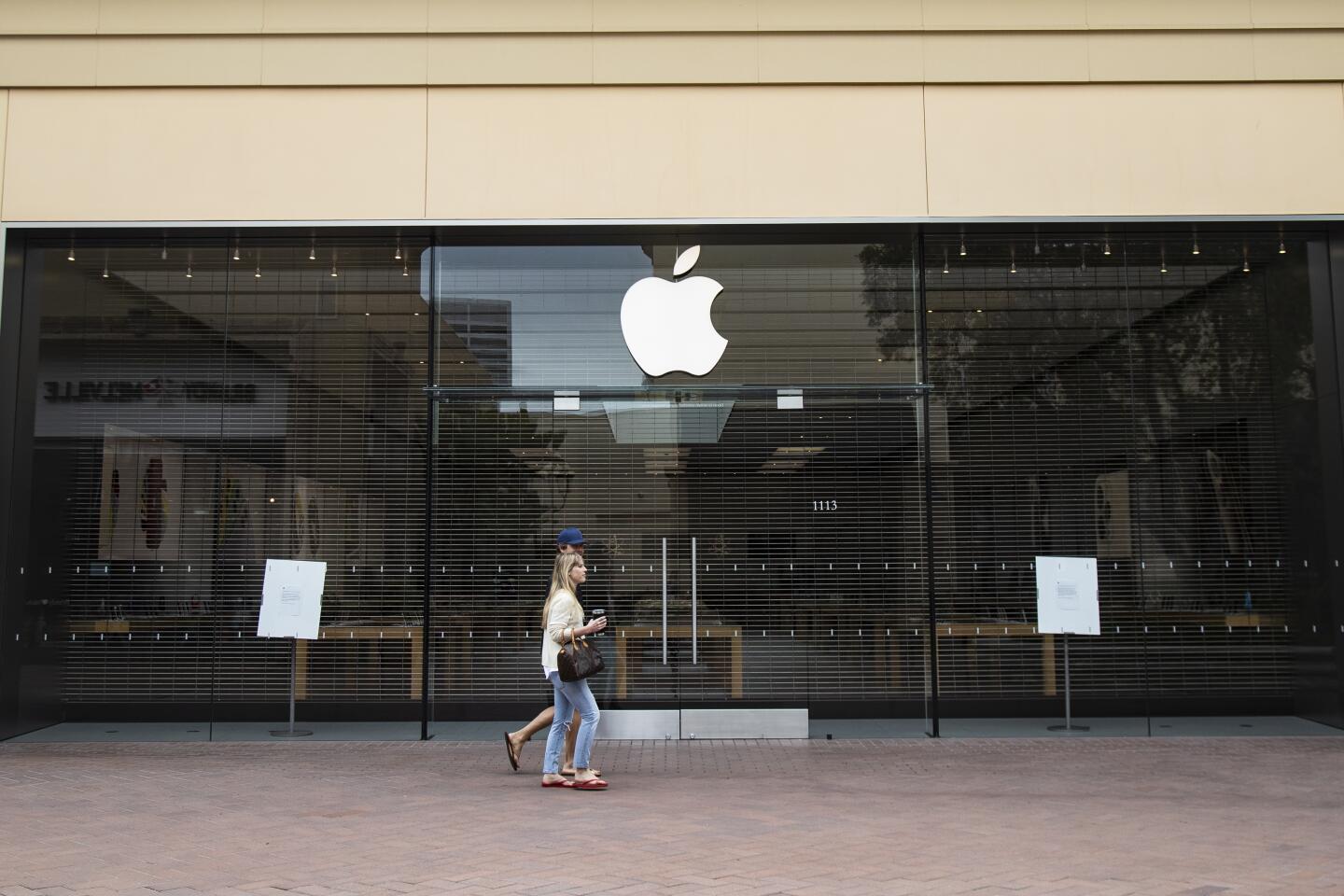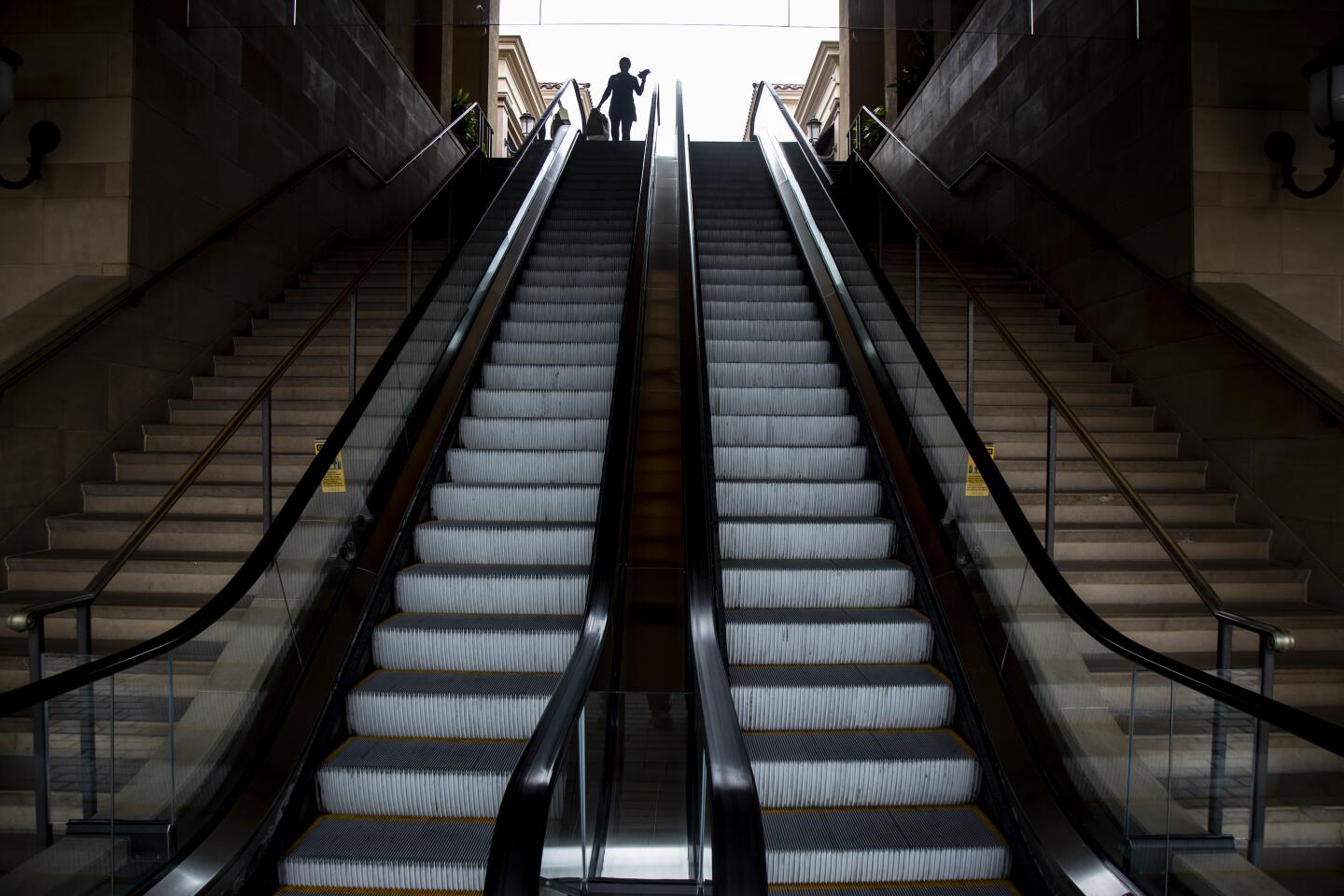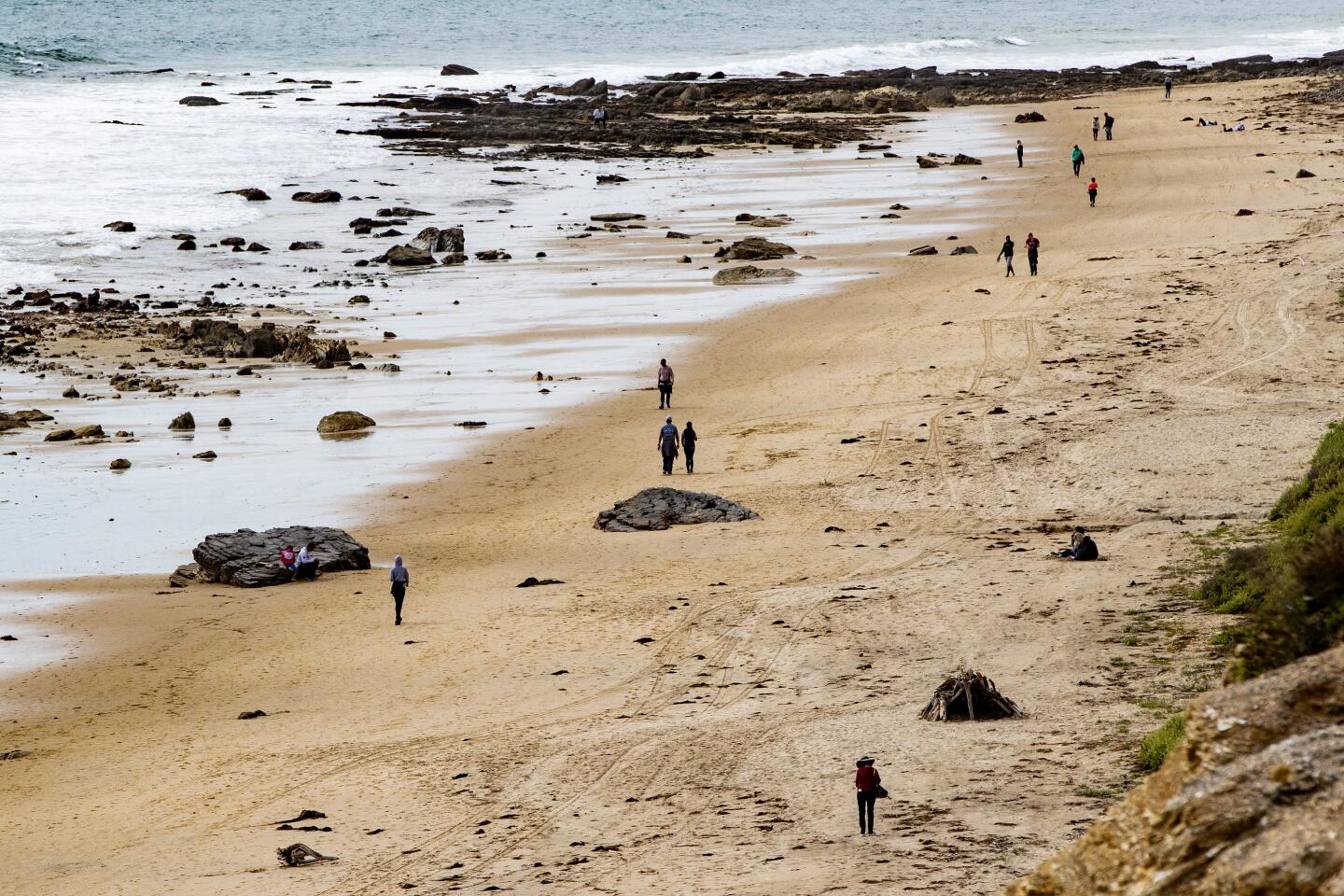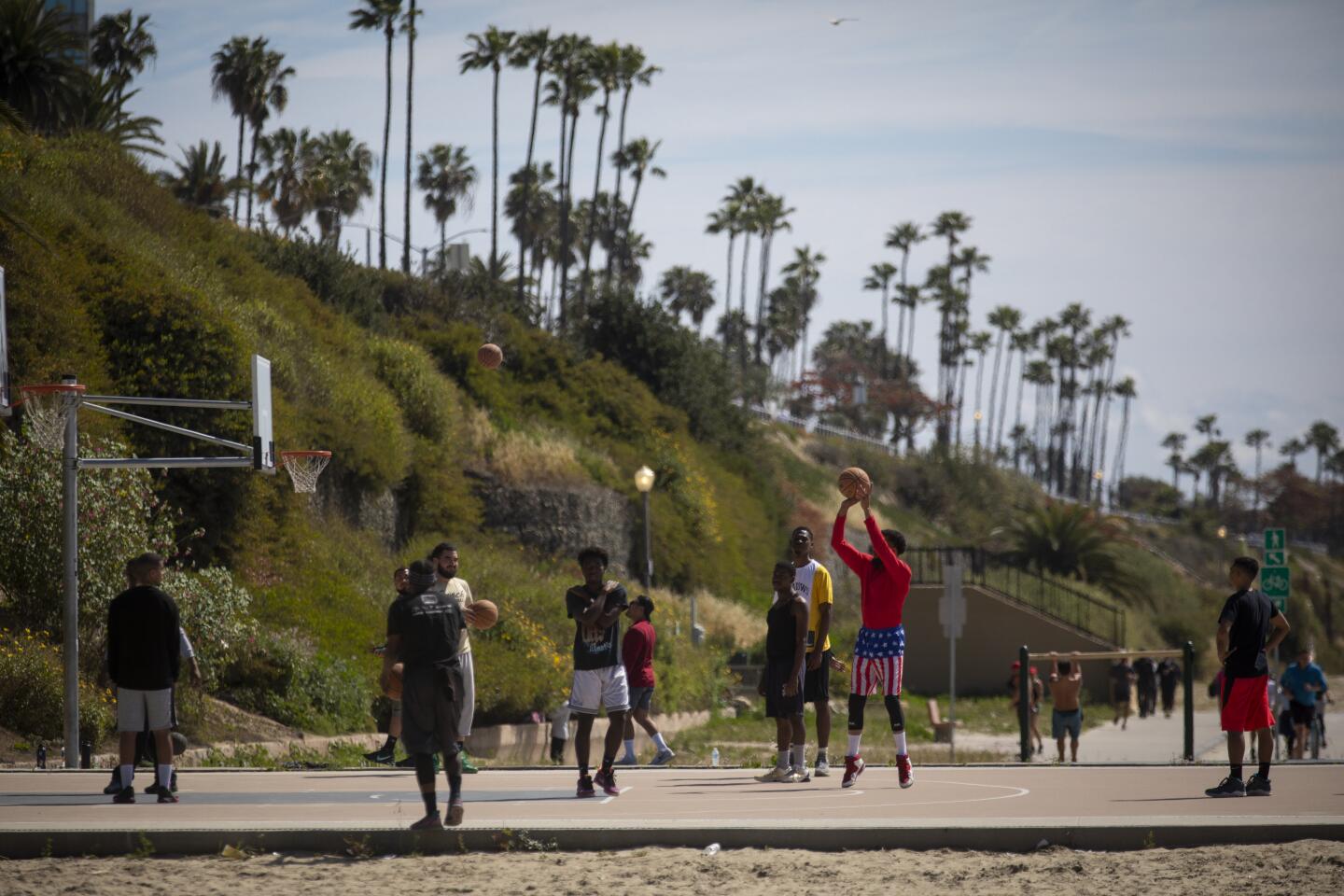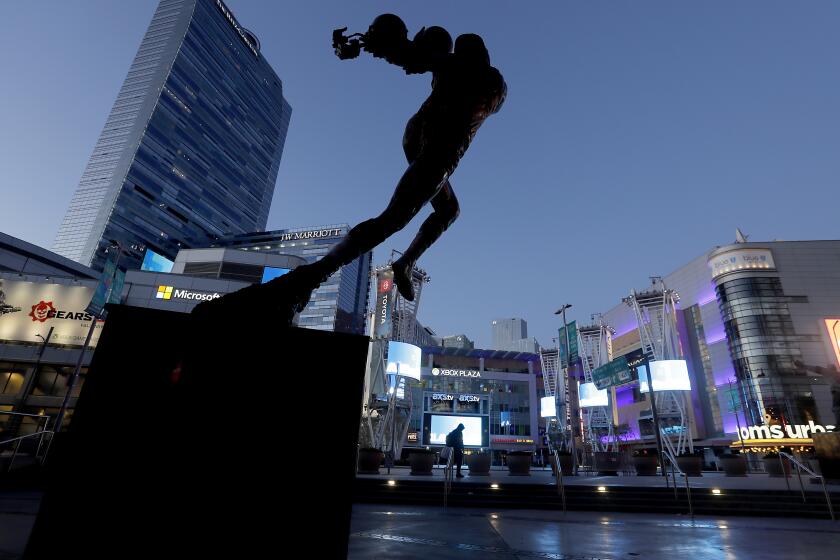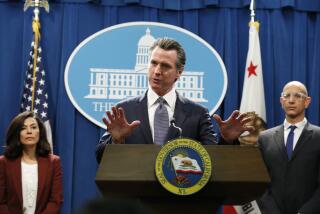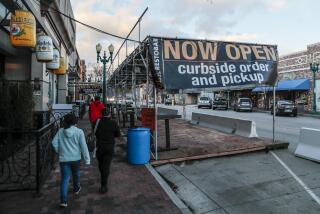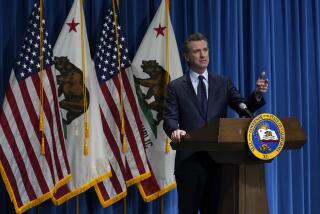Californians ordered to stay at home: Here are the new rules
- Share via
Gov. Gavin Newsom’s sweeping order for Californians to stay home to slow the spread of the coronavirus outbreak will dramatically restrict public movement.
The governor’s office provided a list of how the order will play out:
What stays open:
- Pharmacies
- Food: Grocery stores, farmers markets, food banks, convenience stores, takeout and delivery restaurants
- Banks
- Gas stations
- Laundromats/laundry services
- Essential state and local government functions including law enforcement and offices that provide government programs and services.
What is closed:
- Bars and nightclubs
- Entertainment venues
- Gyms and fitness studios
- Public events and gatherings
- Convention Centers
- Dine-in restaurants
What is behind this?
Officials hope telling people to stay homes and restrict social interactions will slow the spread of the virus and ultimately prevent hospitals from being overrun with sick patients.
Newsom asked Californians to practice social distancing when performing such “necessary activities.”
Gov. Gavin Newsom has ordered Californians to stay at home. With businesses and popular destinations closed, The Times’ Luis Sinco documented the surreal scenes.
“We’re going to keep the grocery stores open,” Newsom said. “We’re going to make sure that you’re getting critical medical supplies. You can still take your kids outside, practicing common sense and social distancing. You can still walk your dog.”
No time frame was set for when the order would end.
What are exemptions from the order?
Newsom’s action orders “all individuals living in the state of California to stay home or at their place of residence, except as needed to maintain continuity of operation of the federal critical infrastructure sectors.”
The government order links to a Department of Homeland Security document that lists 16 “critical infrastructure sectors whose assets, systems, and networks, whether physical or virtual, are considered so vital to the United States that their incapacitation or destruction would have a debilitating effect on security, national economic security, national public health or safety, or any combination thereof.”
Defense Industrial Base Sector
Healthcare and Public Health Sector
Nuclear Reactors, Materials, and Waste Sector
Water and Wastewater Systems Sector
Los Angeles
The city of Los Angeles issued a restrictive order, requiring all nonessential businesses to close, with companies able to operate only through work-at-home arrangements. The order also bans all public gatherings of any size outside homes.
Under the city’s new order, officials said residents are permitted to:
- Go to the grocery store;
- Go to the pharmacy to pick up medications and other healthcare necessities;
- Go to medical appointments (check with your doctor or provider first);
- Take a walk, ride your bike and be in nature for exercise — just keep at least six feet between you and others in the community;
- Walk your pets and take them to the veterinarian if necessary;
- Help someone to get necessary supplies.
Residents are not allowed to:
- Go to work unless providing essential services as defined by the order;
- Visit friends and family if there is no urgent need;
- Maintain less than six feet of distance from others when you go out;
- Travel to or from a job outside the city, unless to perform essential activities;
- Travel to or from a vacation home outside the city;
- Visit loved ones in a hospital, nursing home, skilled nursing facility or other residential care facility.
These are considered essential services:
- City/county government services
- Healthcare providers
- Food and grocery service
- Hardware stores and nurseries
- Plumbers, electricians, exterminators, custodial/janitorial workers, handyman services, funeral home workers and morticians, moving services, HVAC installers, carpenters, landscapers, gardeners, property managers, private security personnel and others who provide services to maintain the safety, sanitation and essential operation of properties and other essential activities
- Banks
- Organizations and businesses that provide food, shelter, social services and other necessities of life for economically disadvantaged or otherwise needy individuals (including gang prevention and intervention and domestic violence agencies)
- Laundromats/laundry service
- Newspapers, magazines, television, radio, podcasts and other media services
- Educational institutions, including public and private K-12 schools, colleges, and universities — for purposes of facilitating distance learning or performing essential functions provided that social distancing of six feet per person is maintained to the greatest extent possible
More to Read
Sign up for Essential California
The most important California stories and recommendations in your inbox every morning.
You may occasionally receive promotional content from the Los Angeles Times.
